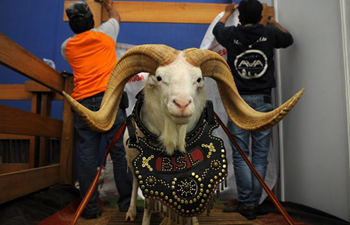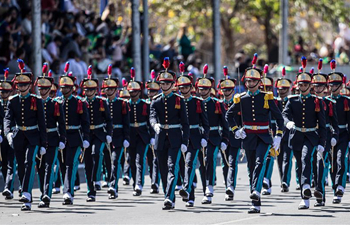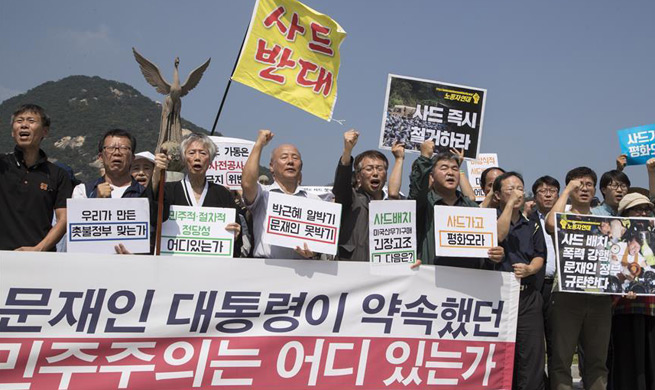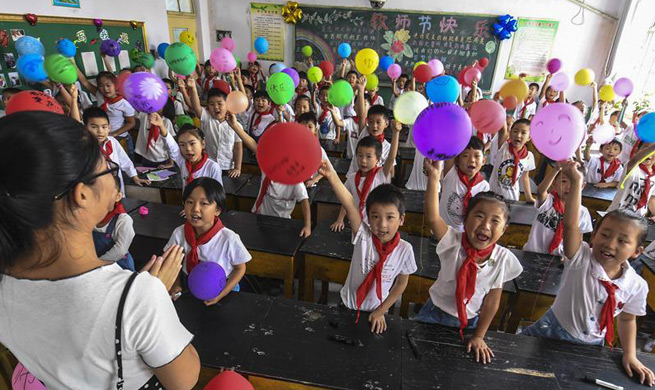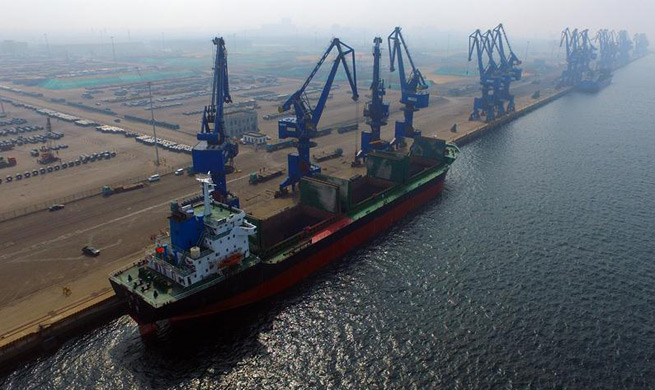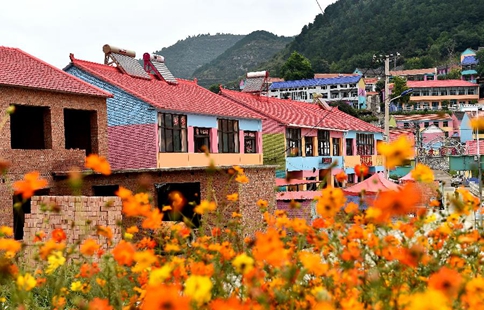NEW DELHI, Sept. 8 (Xinhua) -- An Indian scholar has said that the 9th BRICS summit in Xiamen, China "has injected new hope and energy to the grouping if adhered to will pave the way for a new world order."
In a recent interview with Xinhua, B. R. Deepak, a professor at the Chinese and South East Asian Studies Center of the Jawaharlal Nehru University, said that with the establishment of various successful mechanisms of global governance, the BRICS is ready to enter its next golden decade with greater and pragmatic cooperation that may see greater economic, political and cultural cooperation.
During the summit held in Xiamen, extensive consensus on international situation, global governance and BRICS cooperation had been reached, the professor said.
It could be termed as multi-layered and multi- dimensional cooperation touching political, economic and cultural domains, he said.
Regarding political cooperation, it upholds multilateralism, calls for a more just, equitable, fair, democratic and representative international political and economic order, Deepak said, adding that it endorses the BRICS of openness, inclusiveness and win-win cooperation.
"On economic front, Xiamen summit could be said as a turning point as far as consensus on global governance, practical cooperation between BRICS countries," he noted.
The scholar said practices adopted by BRICS members would deepen cooperation, build trust among the members and beyond, and earn tremendous goodwill for the BRICS at international stage, thus making the grouping an even better multilateral mechanism of global governance.
In the field of people to people exchanges, there are over 60 mechanisms under the ambit of BRICS, these have been instrumental in fostering robust exchanges, he said.
Notwithstanding exchanges such as cultural festivals, media and film exchange, BRICS scholarships, however, there is a huge scope to strengthen and broaden the scope of these exchanges, Deepak pointed out.
Citing the establishment of BRICS University League as an excellent example, the scholar said the BRICS Cultural Council in the foreseeable future may further institutionalize these exchanges and foster better understanding among the members.
The Xiamen Declaration has rightly resonated that the BRICS will deepen cooperation in such fields as culture, education, science and technology, sports and health as well as among media organizations and local governments, to strengthen the third pillar of BRICS cooperation, he said.
By holding dialogue of emerging markets and developing countries, where leaders of Egypt, Guinea, Mexico, Tajikistan and Thailand were invited to join the BRICS proceedings, Deepak believed that the BRICS Plus practice is an important outreach which will essentially strengthen bonds between the emerging countries and foster South-South cooperation.
It is owing to strong domestic drivers that emerging economies would be able to support the ideas of building new mechanism as enshrined in the BRICS declaration, Deepak said.
The momentum could be maintained provided BRICS nations and also the BRICS Plus could align their development strategies and various connectivity projects these countries have initiated, the scholar noted.
"I have remained a votary of the Belt and Road Initiative which has no conflict whatsoever with the BRICS spirit," he added.
It is up to the member countries whether they would like to have a benevolent or malevolent relationship, and determine future of the BRICS, the Indian scholar pointed out.







